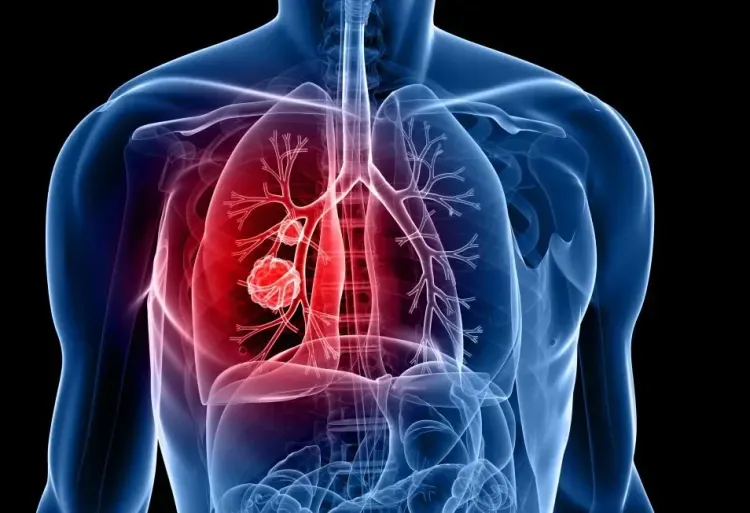Research Indicates Tumor DNA in Blood Can Forecast Lung Cancer Prognosis

New Delhi, Jan 13 (NationPress) A group of British researchers has discovered that a blood test capable of identifying circulating tumor DNA can forecast the prognosis of lung cancer.
Circulating tumor DNA (ctDNA) consists of DNA fragments that tumors release into the bloodstream. While it plays a critical role in disease prognosis, accurately measuring it can be challenging.
In their research, scientists from the Francis Crick Institute and University College London utilized an advanced whole-genome sequencing platform known as NeXT Personal, which can identify remarkably low levels -- as little as 1 part per million -- of ctDNA.
The researchers analyzed blood plasma samples from 171 individuals diagnosed with early-stage lung cancer.
The results, published on Monday in the journal Nature Medicine, revealed that individuals with low ctDNA levels before surgery exhibited a reduced likelihood of relapse and demonstrated better overall survival rates compared to those with elevated ctDNA levels.
The test's high sensitivity allowed for the detection of smaller ctDNA quantities, thereby preventing the misclassification of individuals with lower ctDNA levels as being ctDNA negative.
“We’ve demonstrated that the presence or absence of tumor DNA in the bloodstream is a strong indicator of prognosis. Testing for ctDNA, particularly using highly sensitive platforms, could empower clinicians to make better-informed treatment decisions and provide patients with a clearer understanding of their disease progression,” explained James Black, Postdoctoral Clinical Fellow at the Francis Crick Institute.
Standard treatment for early-stage lung cancer consists of tumor removal through surgery, along with chemotherapy or immunotherapy. The treatment strategy is tailored based on the tumor's stage to maximize the likelihood of a cure.
Furthermore, the research team plans to evaluate the test on samples from patients who have undergone surgery for the earliest stages of lung cancer. This assessment will help determine if the presence of ctDNA in the blood post-surgery can be indicative of future relapse risk.
This advancement could enable clinicians to recommend additional therapies following surgery, thereby enhancing the chances of curing patients, the researchers noted.









